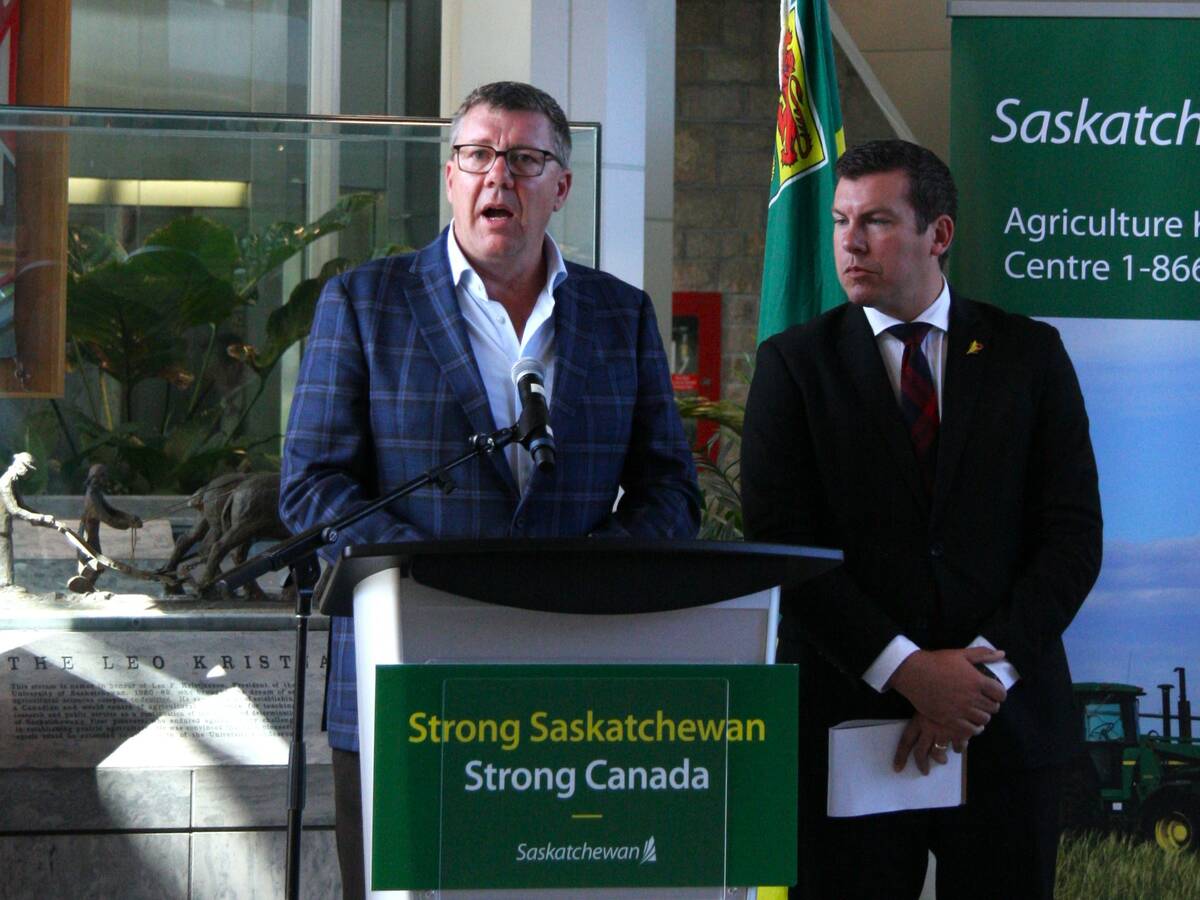OTTAWA (Staff) – When they gather in Quebec City next month, more than 100 agriculture ministers from around the world will approve an ambitious new pledge to feed the world’s hungry.
At an Oct. 14-16 meeting to commemorate the 50th anniversary of the United Nations Food and Agriculture Organization, ministers will approve a Quebec Declaration.
“It will basically affirm that everyone has a right to adequate nutrition,” FAO spokesperson Hilmi Toros said.
The commitment will then be sent to heads of state who meet next year in Rome for a world food conference, the first since 1974.
Read Also

Key actions identified to address canola tariffs
Federal and Saskatchewan governments discuss next steps with industry on Chinese tariffs
At that conference, said Toros, pressure will be applied to leaders to divert some funds from military budgets to agricultural and rural supports.
“If they diverted just one percent of military spending to agriculture, the impact would be dramatic,” he said.
Approval of the Quebec Declaration will be the culmination of eight days of intense meetings at Quebec City Oct. 9-16 as more than 1,500 farmers, bureaucrats, politicians and lobbyists are expected to descend on the city for a food conference.
The Chateau Frontenac hotel was the site of the 1945 meeting which first created the FAO.
The 50th anniversary celebration has prompted a wide array of meetings. Members of the International Federation of Agricultural Producers meet Oct. 9-10 to discuss the evolution of co-operatives as agents for agricultural development.
Industry workshops
Then the FAO takes over for three days of workshops on managing resources, markets and technology.
Their reports will go to agriculture ministers, who then will meet for more than two days to discuss investment requirements in agriculture and to approve the declaration citing the right to adequate food.
Toros said the Quebec City meeting will be the largest world food gathering ever, at least until the heads of state meet next year in Rome.
He said there will be an effort to put some practical policy proposals behind the statement of principle.
However, he also acknowledged the commitment to feeding the hundreds of millions who go to bed hungry each night is happening at the same time as governments around the world are cutting agricultural budgets.
“Bilateral and multilateral assistance to developing countries’ agriculture is declining,” according to an FAO background paper.
“It dropped from $10 billion in 1982 to $7.2 billion in 1992 in constant U.S. dollars. During this period, agriculture’s share of total development assistance fell from 24 percent to 16 percent.”
The challenge at the world leaders’ conference next year, Toros said, will be to convince governments to reallocate money from other departments to food issues.
















